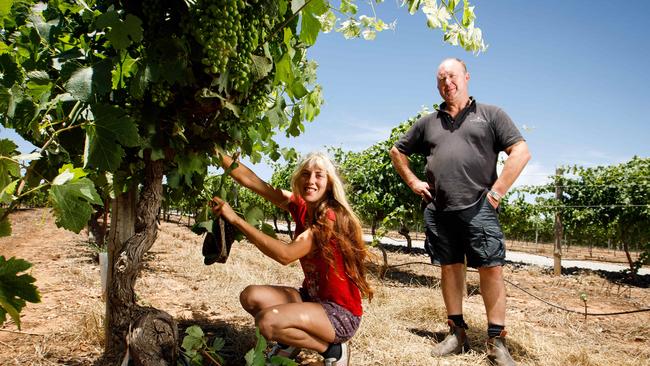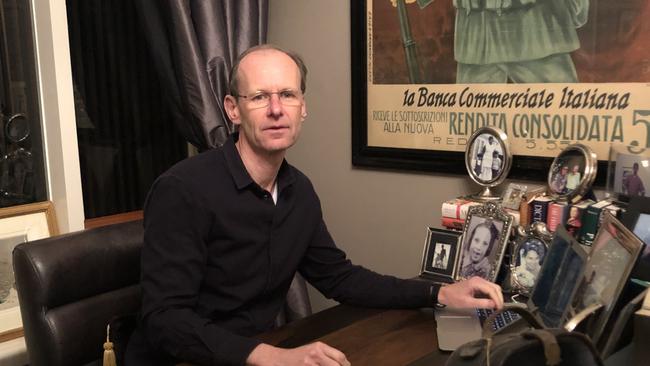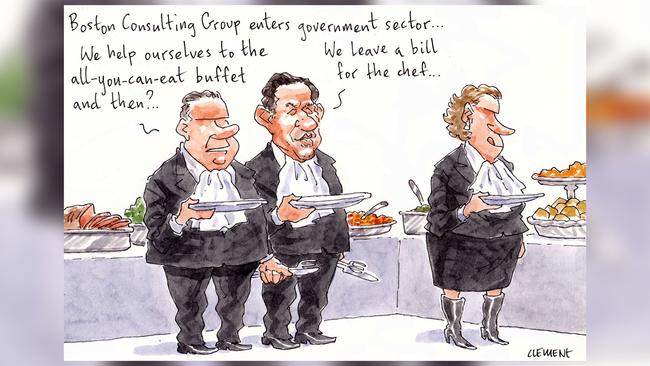Chinese caught in tariffs crossfire

Wines are again the target in the latest ratcheting of tensions between Australia and the sleeping giant, but it seems there are more than a few of their own nationals set to be caught in the crossfire.
On Friday, China’s Ministry of Commerce levelled new tariffs of up to 200 per cent on some of our nation’s biggest wine brands, set to come into effect almost immediately.
While Penfold’s owner Treasury and chair Paul Rayner acted swiftly to put their ASX-listed shares on hold in the wake of the announcement, the waves of the tariffs will be felt across the country — even all the way to Xi Jinping.
You see, local wineries have been a key target for the rising middle class in China, with several big-name Chinese investors keen to get a piece of the action.
Just look at Kilikanoon Wines, the Clare Valley winery established by Kevin Mitchell but who’s share is now dwarfed by China’s oldest and largest wine producer, Changyu, billed as bringing some of the first vines to the continent.
The group bought into the establishment for $20.6m in 2017, keeping Mitchell and his managing director Warrick Duthy on the register — but with a dramatically reduced stake.
It is a similar story at Ferngrove Vineyards in Western Australia’s Frankland River.
While the estate was founded by Murray Burton in 1998, a majority stake was bought out by wealthy Chinese businessman Xingfa Ma in somewhat of a buying spree of assets, including two cattle stations in the Pilbara (on-sold to the McMillan family last year) and a further winery in South Australia (now on the market).
Despite their ties to the Middle Kingdom though, neither group has been spared new tariffs of 160 per cent, joining a long list of fellow targeted Aussie wine owners the likes of Woolies, through its Steve Donohue-led Endeavour Drinks, and Hunter Valley stalwarts Brian and Neil McGuigan.
International players Pernod Ricard and Henkell Freixenet make the list of targets a truly global affair.
Covid slows case
An ongoing legal spat between the corporate watchdog and mining heavyweight Rio Tinto will drag into 2022, after the latest court orders noted COVID-19 as a key consideration.
The dispute with ASIC centres on alleged misleading and deceptive conduct by then-chief Tom Albanese (no relation to Albo) and chief financial officer Guy Elliott.
Both are alleged to be involved in the delaying of impairment testing of the disastrous 2011 Riversdale Mining takeover that saw the miner acquire $4bn of Mozambique coal assets.
With their ties well and truly severed from Rio, getting either exec back to Australia to front the court has been a key point of contention, made worse by the slamming shut of borders due to the dreaded virus.
In a federal court hearing on Friday, Justice David Yates pushed back the seven-week hearing to February 2022 so that US-citizen Albanese and UK-citizen Elliott can have their day in Sydney court … in person.
Yates noted that the New Jersey-based Albanese, who was asked to leave in the wake of the scandal and replaced by Sam Walsh in 2013, was 63 years old, and was of particular risk given his age and “in the absence of effective vaccination”.
Similarly Elliott, 64, who resides in London and also counts Royal Dutch Shell as a previous employer, noted his own concern for the possibility of contracting the virus, though noted that he was prepared to do so if permitted by the local authorities.
That’s not to mention the clashing time zones, which the judge noted were particularly onerous.
ASIC meanwhile pushed for the case to go ahead via videolink next March, citing its proceedings against GetSwift that are going ahead despite founders Joel MacDonald and Bane Hunter both being New York-based.
In the end though, the final call by Yates was to re-list the matter in 15 months time — with even him joining in the vaccine stargazing by noting that he had a “relatively high degree of confidence” a vaccine would be available in that time.
Bank chief’s payday
ANZ chief executive Shayne Elliott is shaping up for a $3.5m boost to his personal wealth at the group’s upcoming AGM, provided he can win over shareholders to vote in his favour.
Ahead of the group’s AGM on December 16, it said on Friday it had done the sums and would recommend shareholders vote in favour of a proposed 159,308 in performance rights (across two tranches) to be allocated to Elliott, at a price of $21.97.
That’s on top of a tidy $5.22m salary for the year to September 30 — likely to be the subject of shareholder scrutiny if its rival bank meetings are anything to go by.

Commonwealth Bank endured a meaningful protest vote on a controversial $1.6m equity grant to CEO Matt Comyn at its annual general meeting last month. While the resolution was still approved, about 21 per cent of votes were lodged against the grant of the restricted share units.
Over at NAB, chief Ross McEwan pocketed $2.42m for his first part-year in the top job, after taking a 20 per cent cut in his fixed pay in the September half due to the global pandemic.
McEwan spoke several times this year about sharing the COVID-19 pain of NAB’s customers and shareholders. Rare for a banker!
“There has to be a direct correlation between (that) we should only win when our customers and our shareholders are winning,” Mr McEwan said.
“We understand the pain that customers are feeling at the moment … the last thing they want to see is bankers winning off the back end of them.”
Travelling nicely
To mere mortals who’ve had to cancel their travel plans this year, the impact of the coronavirus on the tourism sector may seem self-evident.
Nonetheless, the Pip Harrison-led Tourism Australia has called in the big guns to conduct an economic analysis “to inform Tourism Australia’s understanding of the effects of the COVID-19 pandemic on the tourism sector globally”.

Andrew Clark’s local team from Boston Consulting Group will be paid about $1.3m to help the Bob East-chaired government organisation work out how COVID-19 has hurt operators as well as strategies to turn things around.
How hard could that all be?
Tourism Australia’s board also comprises the likes of Harvey Norman owner and boss Katie Page, SeaLink chair Jeff Ellison and HWT chair and Visy advisory board member Penny Fowler.
Where would the consultants be without the government sector? At the end of last year, BCG was also called in to help Australia Post, at the time run by Christine Holgate and still chaired by Lucio Di Bartolomeo.
The firm is also helping Stuart Robert’sHuman Services department with “strategic planning” in a contract that started off to be worth $1.9m, but has to date ballooned to $3.3m.
Of course it was Roberts’ department that handled the bungled so-called robodebt scheme, which has just resulted in a $1.23bn compensation scheme.
Maybe that makes the consultants look cheap.



To join the conversation, please log in. Don't have an account? Register
Join the conversation, you are commenting as Logout